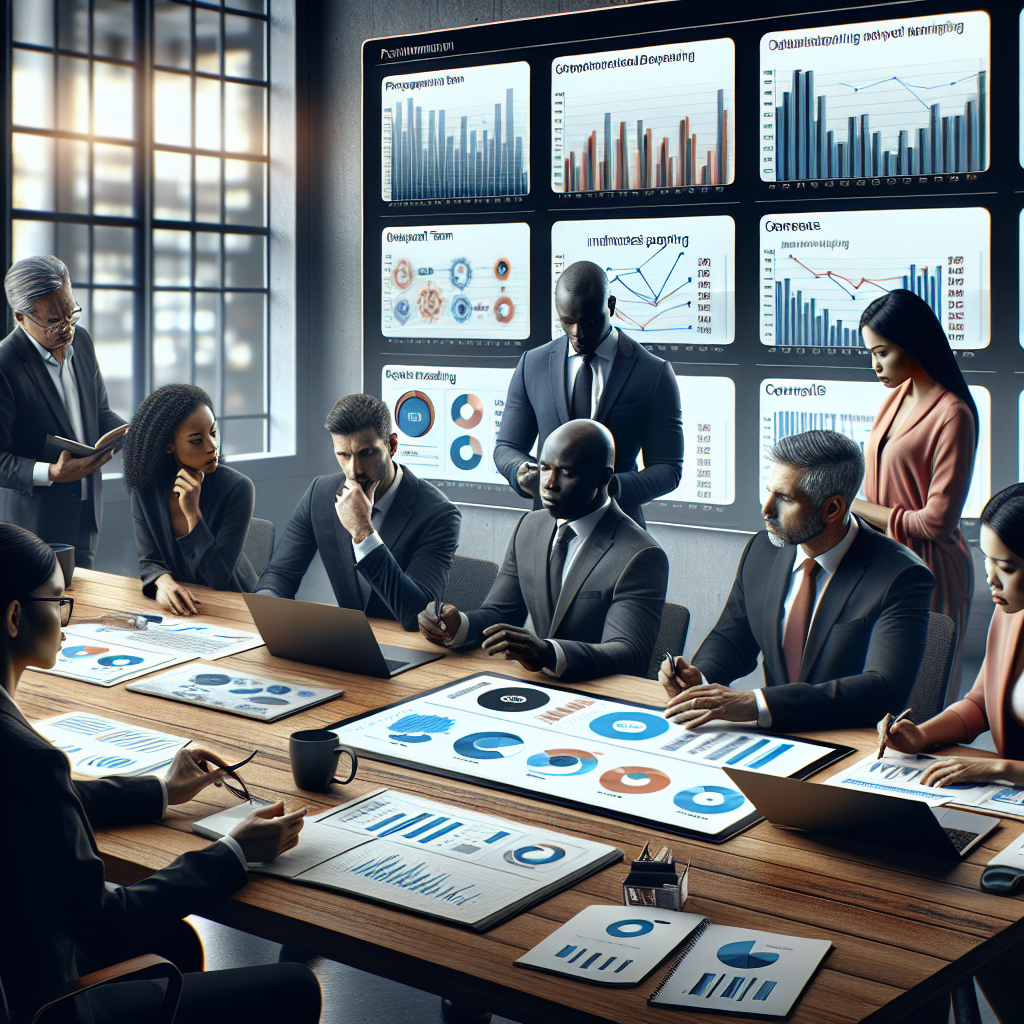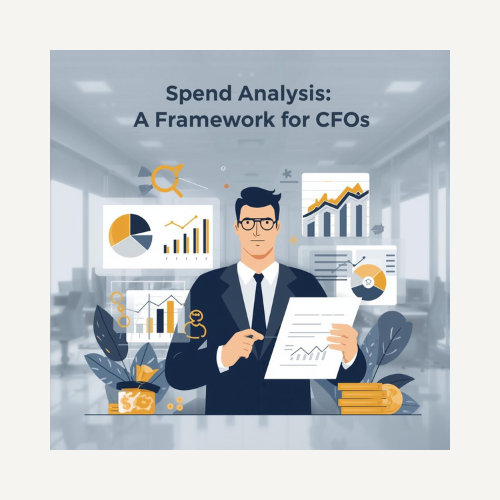Integrated Collaborative Framework: Empowering Ethical and Resilient Suppliers


Why This Topic Matters
Supply chains are the unsung heroes of the global economy. Yet, these complex networks can be as fragile as your Monday morning coffee ritual. We’ve all seen how shocks like COVID-19, climate crises, and geopolitical tensions disrupt supply lines. Here’s the catch — if your suppliers aren’t committed to ethical principles and resilience, you’re risking more than just delays. We’re talking serious reputational damage and headaches from tightening regulations.
Bottom line? Resilient, ethical supplier partnerships aren’t a luxury; they’re essential. This guide offers fresh insights, inspiring success stories, and practical tactics so you can lead — or at least join — the movement toward supply chain excellence.

The Foundations of an Integrated Collaborative Framework
Imagine a tripod — strong only when all three legs are solid. Your ethical supply chain framework stands on three key pillars:
1. Strategic Collaboration & Mutual Accountability
Forget “us vs. them.” Real partnerships require aligning goals, open communication, and co-creating value beyond invoices. Clear KPIs and shared responsibilities aren’t just buzzwords — they’re the glue that fosters trust, agile problem-solving, and innovation.
2. Embedded Ethical Standards & Transparency
Ethical sourcing is more than a checklist; it’s a guiding compass for labor rights, environmental stewardship, and governance (think ESG). Third-party audits, certifications, and digital traceability form your supply chain’s honesty system — because what’s hidden can’t scale.
3. Resilience Through Technology and Capacity Building
Technology isn’t just for startups. Leveraging blockchain, AI analytics, and real-time monitoring lets you anticipate risks instead of reacting. Pair this with supplier training and fair business practices, and you empower your partners to recover and thrive.

Real-World Examples of Ethical Supplier Empowerment Programs
Looking for proof? Check out these industry leaders:
Technology – Apple’s Rigorous Supplier Accountability
Apple audits 94% of its supplier spending and enforces zero tolerance on labor violations—no child or forced labor allowed. They don’t just enforce rules; they train suppliers and partner with NGOs to solve root issues. The payoff? A supply chain rich in ethics and brand strength [Apple Supplier Responsibility Report 2023].
Food & Beverage – Starbucks’ C.A.F.E. Practices
Starbucks’ Coffee and Farmer Equity (C.A.F.E.) Practices incorporate third-party checks ensuring quality, fairness, social responsibility, and environmental care. Their billions invested in diverse, sustainable suppliers empower farmers and their communities to flourish [Starbucks Global Impact Report 2024].
Retail – Patagonia’s Holistic Supplier Welfare
Since 1994, Patagonia has set a high bar with organic materials and a firm commitment to safe, fair labor. Beyond basics, they provide excellent health insurance and parental leave — proving ethical supply chains attract loyal, eco-conscious consumers [Patagonia Environmental & Social Responsibility 2024].
Automotive – Ford’s Diverse Supplier Development
Ford has invested nearly $6 billion in minority-owned suppliers, combining financial support with mentorship and development programs. The result? Enhanced innovation and a more resilient supplier ecosystem [Ford Supplier Diversity Report 2023].

Key Challenges in Ethical Supplier Collaboration
Reality check: it’s not all smooth sailing. Here are some common hurdles:
- Misaligned Goals: Buyers prioritize cost and speed; suppliers focus on sustainability and livelihoods.
- Trust Deficits: Reluctance to share sensitive data can halt collaboration.
- Technology Gaps: Outdated supplier systems hinder real-time monitoring.
- Regulatory Complexities: Varied international rules make consistent enforcement tough.
- Cost Concerns: Ethical upgrades require investment often beyond suppliers’ means.
- Resistance to Change: Established habits in traditional sectors can slow progress.
The solution? Cultivate trust, invest in technology and training, align priorities, and remember — this is partnership, not policing.
Emerging Trends in Resilient Supply Chain Frameworks and Collaboration
Data-Driven Visibility & Risk Management
AI and analytics give supply chains near superhuman vision. Real-time alerts, compliance dashboards, and blockchain-secured data integrity aren’t futuristic — they’re essentials by 2025 [Supply Chain Brain, 2025].
Holistic Supplier Segmentation & Joint Planning
Tailored collaboration is the new norm. Companies tag suppliers by risk and importance, enabling agile joint planning for resilience.
Diversification & Regionalization Strategies
Global diversification spreads risk; regionalization buffers geopolitical and environmental shocks. Multi-sourcing and nearshoring lead the charge [BCG Supply Chain Insights 2025].
Cultural Shift Towards Ecosystem Thinking
From “buyer vs. seller” to “ecosystem partners” — shared accountability, continuous improvement, and equitable contracts drive innovation.
Public-Private Collaborations & Regulatory Harmonization
Entities like APEC and OECD smooth regulatory complexities and foster global ethical sourcing standards.
Practical Steps to Implement an Integrated Collaborative Framework
Ready to act? Here’s your playbook:
- Define a Clear Ethical and Resilience Vision
Set ESG goals aligned with business strategy. Secure buy-in from leadership and communicate widely. - Engage Suppliers Early and Often
Co-create standards, share forecasts, and build trust through transparency. - Harness Technology for Transparency and Efficiency
Adopt platforms for data sharing and risk management. Use blockchain and AI to ensure honest, actionable data. - Invest in Supplier Capacity Building
Provide training on labor, environmental practices, and quality. Support supplier-driven innovation. - Establish Robust Metrics and Accountability Mechanisms
Implement KPIs covering ethics, resilience, and partnership health. Regular audits and feedback are crucial. - Foster a Collaborative Culture
Maintain open communication, celebrate supplier successes, and align incentives for mutual benefit.
And yes, your CFO will appreciate the ROI.
Common Myths and Misconceptions
- “Ethical sourcing is too expensive and slows processes.”
Think again. Investing upfront often yields better quality, reduced risks, and loyal suppliers. - “Audits alone ensure compliance.”
Audits matter but are only the first step. Empowerment and transparency create lasting impact. - “Empowering suppliers means losing control.”
Effective frameworks balance clear expectations with supplier autonomy — it’s a partnership, not a leash.
Future Outlook: The Road to Resilient and Ethical Global Supply Networks
As risks increase and regulations tighten, blending collaboration, ethics, and resilience shifts from optional to mandatory. Emerging technologies like generative AI and IoT will heighten supply chain responsiveness and oversight.
The future means embedding sustainability and ethics deeply into governance, transforming them from checkboxes into competitive advantages. Leaders in this space aren’t just building resilient supply chains; they’re reshaping industries, protecting communities, and winning customer trust.
Conclusion and Key Takeaways
Quick recap:
- An Integrated Collaborative Framework combines strategic partnership, ethical standards, and tech-driven resilience to empower suppliers.
- Companies like Apple, Starbucks, Patagonia, and Ford prove that investing in supplier development and transparency pays off.
- Challenges such as trust gaps, conflicting goals, and financial constraints call for collaborative, long-term solutions.
- Trends in data visibility, diversification, ecosystem thinking, and regulatory alignment shape the ethical resilient supply chain of 2025.
- Practical steps include defining a clear vision, engaging suppliers, leveraging technology, setting meaningful metrics, and nurturing collaboration.
Ready to build a supply chain that stands strong in any storm while doing good? This is your moment.





